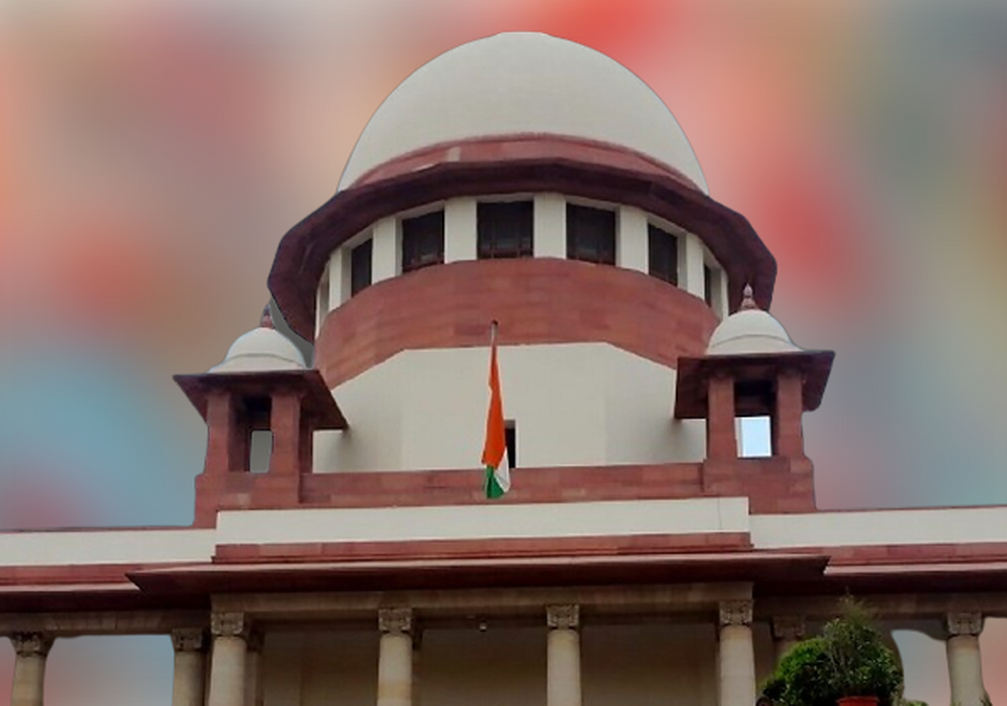In Civil Appeal No. 6953 OF 2022-SC- Leave encashment is part of salary, reaffirms Apex Court while clarifying that Non-Government Educational Institutions (Recognition Grant-In-Aid and Service Conditions) Rules, 1993 cast liability on aided Establishment to pay gratuity
Justices Uday Umesh Lalit & S. Ravindra Bhat [26-09-2022]

Read Judgment:JAGDISH PRASAD SAINI & ORS v. STATE OF RAJASTHAN & ORS
Mansimran Kaur
New Delhi, September 28, 2022: While observing that the Non-government Educational Institutions in Rajasthan are governed by the Rajasthan Non-Government Educational Institutions Act, 1989 and the rules framed thereunder, the Supreme Court has made it clear that the scheme of the Non-Government Educational Institutions (Recognition Grant-In-Aid and Service Conditions, Etc.) Rules, 1993, which contains the conditions of grant, categorically cast the liability to pay gratuity on the the aided establishment
Relying upon the judgment in State of Rajasthan and Anr. v. Senior Higher Secondary School, Lachhmangarh, the Division Bench of Chief Justice Uday Umesh Lalit and S. Ravindra Bhat said, “As far as leave encashment dues are concerned, the issue is no longer at large. In Senior Higher Secondary School Lachhmangarh (supra) this court held that salary under the Act, includes leave encashment.”
The appellants were appointed against sanctioned posts by the fourth respondent (a senior secondary school, established and controlled by the respondent-trust) in 1993. They continued to work uninterruptedly in that establishment on a regular basis. The establishment was recipient of grant-in-aid from the State of Rajasthan and by a resolution. the managing committee of the establishment decided to discontinue receipt of grant-in-aid from the State with effect from 1 April, 2008. Accordingly, the State by an order dated December 28, 2012 ceased to grant aid with effect from March 1, 2012.
The appellants’ writ petitions were clubbed with several other petitions and disposed of by the High Court, refusing to direct the State to absorb these employees. The employees, including the appellants, unsuccessfully sought review of those orders which was rejected. The appellants thereafter approached this court by petitions for special leave to appeal questioning the orders of the High Court. By its final order of July 19, 2016, this court set aside the denial of absorption of the appellants.
Subsequently, the establishment moved an application seeking directions from this court. The application contended that the establishment had to pay the 11 aided employees, (i.e., the appellants) to the tune of Rs 57.68 lakhs, and privilege leave salary to the tune of Rs 36.20 lakhs. The application also produced a chart of calculation of gratuity and leave encashment. This application was not allowed. However, this Court allowed the appellants to withdraw the contempt petitions, with liberty to move the High Court for enforcement of orders of this court. In these circumstances, the appellants moved the High Court contending that the orders of this court had not been properly complied with, to the extent that they had not been paid privilege leave encashment and gratuity amounts.
The High Court by the impugned order rejected the applications preferred before it on the ground that since the salary required to be disbursed had in fact been paid to the appellant employees, there was no cause to pursue the matter further.The aggrieved appellants therefore approached this court.
After considering the rival contentions of the parties, the Court took into consideration the Rajasthan Non-Government Educational Institutions Act, 1989 and Rajasthan Non-Government Educational Institutions (Recognition Grant-In-Aid and Service Conditions, Etc.) Rules, 1993.
In the present case, the management establishment was the recipient of 70% aid, in the form of a grant, the Court noted.
In the present case, “...the scheme of the 1993 Rules, which contained the conditions of grant, categorically cast the liability to pay gratuity on the employer, i.e., the aided establishment, i.e., the fourth, fifth and sixth respondents in this case”, the Court noted.
In these circumstances, the State cannot shrug its responsibility to shoulder its part of the responsibility to pay the appellants the share of leave encashment benefits, and hide behind either Rule 5 (viii) or the undertaking executed by them.
The Bench held that the appellants were entitled to privilege leave entitlement benefits. Such benefit shall be calculated from the date they entered the service of the establishment till the date of their absorption, by the State, in 2016. The State shall pay the benefits due to the extent of 70%, and the balance 30% shall be payable by the management establishment, the Court further noted.
At the outset, the Court observed that with respect to leave encashment, the State and the respondent- establishment are liable to pay the appellants, in the ratio of 70:30 respectively. The respondent State shall, within four weeks from today, determine the extent of entitlement of each appellant, and communicate the extent of amount payable by the management establishment (third to seventh respondents), to the appellants. These amounts shall be paid by all the respondents, within six weeks from today.
The Management shall also calculate and pay the amount of gratuity, to the appellants (on the basis of their initial date of entry in the school, till the date of order of absorption, by the respondent State), within six weeks, the Bench held. In light of the observations stated above, the appeal was allowed and the impugned order was set aside.
Sign up for our weekly newsletter to stay up to date on our product, events featured blog, special offer and all of the exciting things that take place here at Legitquest.




Add a Comment